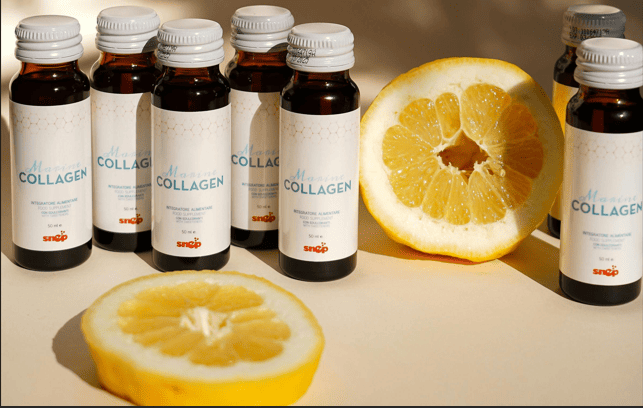
Pregnancy changes your body in ways you’ve probably never experienced before. Your skin stretches. Your joints ache. You might even notice your hair or nails feeling different. When you’re pregnant, it’s normal to be cautious about everything you eat or take. Collagen is a key protein that maintains the strength and structure of your skin, joints, and connective tissues. During pregnancy, your body requires more collagen to support the physical changes and fetal development. Ensuring adequate intake can contribute to overall maternal health. So if you’ve heard about collagen supplements to improve skin elasticity, joint support and help with postpartum recovery—it’s only fair to ask: Is collagen safe during pregnancy? Could it actually help, or could it cause harm to you or your baby? Let’s break it down clearly so you can decide with confidence.
Many expecting mothers want to stay strong and feel good throughout pregnancy, and collagen seems like a simple solution. But with so much conflicting information online and limited research on supplement safety during pregnancy—it’s easy to feel confused or hesitant.
This guide is here to clear things up. We’ll cover what collagen is, why your body needs it during pregnancy, whether supplements are safe and how to choose the right type if you decide to use one. You’ll also learn about natural sources of collagen, how much is enough and the real benefits (backed by science, not hype). Let’s explore it together.
Table of Contents
What Is Collagen and Why Does It Matter During Pregnancy?
Collagen is the most common protein in your body. It supports skin elasticity, joints, tendons, and even blood vessels—all of which are under strain during pregnancy. Your body makes collagen naturally, but production slows with age and physical stress (like, say, growing a baby).
During pregnancy, your body stretches rapidly, your joints loosen, and your skin needs support. That’s where collagen becomes especially relevant.
Final Takeaway: Is Collagen Safe for Pregnancy?
Yes, with the right supplement and approval from your healthcare provider, collagen is safe and can be beneficial during pregnancy. It’s not a magic fix, but it can support the intense physical changes your body goes through.
Relevant: What foods to avoid in pregnancy?
Is It Safe to Take Collagen Supplements While Pregnant?
Yes. For most women, collagen is considered safe during pregnancy when consumed in appropriate amounts from clean, reputable sources. It’s a form of protein, specifically rich in amino acids like glycine, proline, and hydroxyproline, which help build connective tissue.
However, there are a few caveats:
- Not all supplements are regulated or third-party tested.
- Collagen supplements often include extra ingredients like sweeteners, flavors, and fillers to enhance taste.
- Not all types of collagen are created equal—some are more digestible and effective than others.
So while the collagen itself isn’t the issue, it’s the quality and content of the supplement that needs to be evaluated.
Pro Tip: Always choose hydrolyzed collagen peptides or bovine/marine collagen that’s labeled third-party tested and free from artificial additives.
What Are the Benefits of Collagen During Pregnancy?
Here’s how collagen might help during pregnancy, according to current research and anecdotal use:
1. Supports Skin Elasticity
- May help reduce the appearance of stretch marks
- Helps skin stay supple as it stretches
2. Eases Joint and Back Discomfort
- Collagen helps strengthen ligaments and cartilage, which can reduce joint strain and lower back pain
3. Improves Hair and Nail Strength
- Pregnancy hormones can thin hair or weaken nails; collagen may promote healthy regrowth
4. Promotes Gut Health
- Glycine helps strengthen the gut lining, which can ease digestion and reduce bloating
5. Supports Postpartum Healing
- Tissue repair and skin healing after childbirth may benefit from extra collagen support
What Are the Risks of Taking Collagen During Pregnancy?
While generally safe, collagen isn’t risk-free if taken without caution.
Watch out for:
- Allergies (especially marine collagen if you have a seafood allergy)
- Unregulated supplements that contain heavy metals or toxins
- Excess protein intake if you’re already taking other protein-rich supplements
- Additives like caffeine, artificial sweeteners, or hidden sugars
Also, there’s limited formal research on collagen use during pregnancy, so always speak with your OB-GYN before starting a supplement.
Also read: Can I eat corn in pregnancy?
Which Types of Collagen Are Safe During Pregnancy?
There are five main types of collagen, but most supplements include Type I, II, or III:Avoid unknown blends or collagen types not clearly labeled.
| Collagen Type | Source | Benefit | Safe in Pregnancy? |
| Type I | Bovine, Marine | Skin, bones, tendons | ✔ Yes |
| Type II | Chicken cartilage | Joints, cartilage support | ✔ With caution |
| Type III | Bovine, fish | Skin, uterus, blood vessels | ✔ Yes |
How Much Collagen Should You Take While Pregnant?
There’s no official RDA for collagen during pregnancy, but most experts recommend 10–15 grams per day from high-quality collagen peptides. That’s roughly 1–2 scoops, depending on the brand.
Do not exceed your total daily protein requirement, which for pregnant women is around 75–100 grams per day, unless your provider advises otherwise.
Can Collagen Affect Your Baby’s Development?
There’s no evidence to suggest that collagen harms fetal development. In fact, amino acids from collagen support healthy growth of fetal tissues, including skin, bones, and joints.
However, always ensure your overall nutrition includes a variety of protein sources, not just collagen, since collagen is incomplete—it lacks essential amino acids like tryptophan.
Natural Collagen Boosters in a Pregnancy Diet
If you’re not ready to try supplements, you can still increase your body’s collagen production naturally:
- Bone broth (slow-simmered chicken or beef bones)
- Egg whites
- Salmon skin
- Leafy greens
- Berries (rich in vitamin C)
- Seeds and nuts
Also, stay hydrated and get enough vitamin C, zinc, and copper—nutrients that support your body’s own collagen synthesis.
Conclusion: Is Collagen a Smart Choice During Pregnancy?
Collagen can be a helpful, safe addition to your pregnancy wellness routine—when used wisely. It supports your changing body, especially your skin, joints, and connective tissues, all of which go through intense changes during pregnancy. If you’re dealing with stretch marks, back discomfort, or want to promote healthy recovery after birth, collagen may offer gentle support.
But not all supplements are equal. Before adding collagen during pregnancy, it’s essential to choose clean, third-party tested products with no unnecessary additives. Hydrolyzed collagen peptides from trusted sources are often considered safest. Also, collagen is not a complete protein or a substitute for prenatal vitamins. It should complement, not replace, a balanced pregnancy diet.
For those who prefer food-based options, collagen-rich meals like bone broth, eggs, and leafy greens are excellent ways to nourish naturally. And don’t forget—hydration and vitamin C are key for your body to produce collagen on its own.
As always, speak to your healthcare provider before starting any supplement. Every pregnancy is unique, and your doctor can guide you based on your individual needs, trimester, and health conditions. In short, if you’re wondering, “Is collagen safe during pregnancy?”—the answer is yes, with caution, quality, and balance. It’s not about chasing trends, but about understanding your body and making informed choices. With the right approach, collagen can be one more way to support your strength, comfort, and confidence before and after the baby arrives. Stick with clean, well-sourced collagen products, listen to your body, and always keep your OB-GYN in the loop. Whether you choose a supplement or natural food sources, collagen can be a smart part of your pregnancy wellness plan.
FAQs: Collagen and Pregnancy
Is it safe to take collagen supplements while pregnant?
Yes, collagen supplements are generally safe during pregnancy if they are clean, high-quality, and taken in moderation. However, always check the ingredient label and consult your healthcare provider before starting any new supplement.
Can I take prenatal vitamins and collagen together?
Yes, you can. Collagen is a protein and doesn’t interfere with the nutrients in prenatal vitamins. Just ensure you’re not exceeding your total protein needs for the day.
Who should avoid taking collagen?
Anyone with a known allergy to collagen sources (like fish or bovine), or those with chronic kidney issues or sensitivities to high protein intake, should consult a doctor before using collagen. Also avoid if your healthcare provider has advised against extra protein.
Can I take collagen during the first trimester?
Yes, but it’s best to ease into it. Early pregnancy can come with nausea or food sensitivity. Starting with a small dose or waiting until the second trimester may feel more comfortable. Always check with your healthcare provider first.
Is collagen helpful for postpartum recovery?
Yes, it can be. Collagen plays a crucial role in recovery after birth. It aids in tissue repair, supports skin healing and promotes hair regrowth. It helps new mothers restore strength and wellness. It may also help rebuild strength after a C-section or vaginal delivery when used as part of a balanced recovery plan.
Should I stop taking collagen if it causes discomfort?
If you feel bloated or unwell, take a break. Sometimes it’s not the collagen itself, but added flavors, fillers, or sweeteners. Try switching to a simpler formula or ask your doctor for safer alternatives.
Can I take collagen with my prenatal vitamins?
Yes, you can safely take both. Collagen doesn’t interfere with prenatal nutrients. Just be mindful of your overall protein intake and ensure you’re not overloading your body with too many supplements at once.
What supplements should I avoid during pregnancy?
Avoid supplements high in vitamin A (like retinol), unregulated herbal blends, high doses of caffeine, and anything not approved by your OB-GYN. Always stick to products tested for pregnancy safety.

